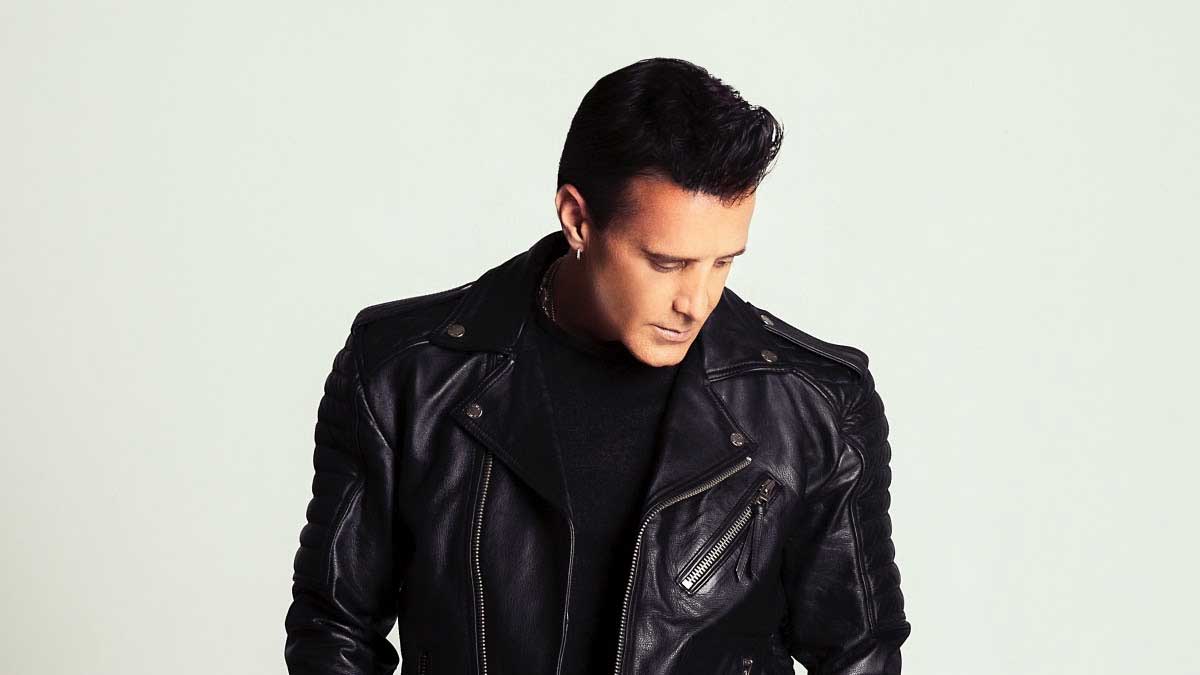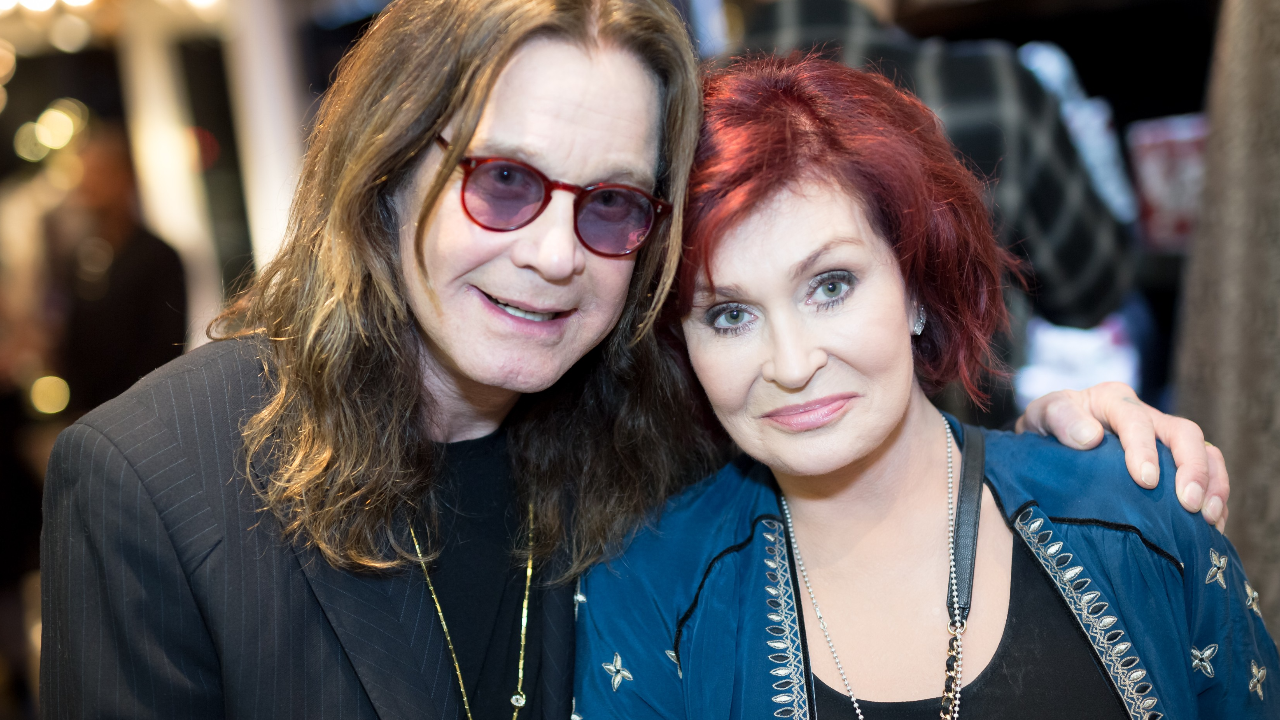"We're not defined by the five worst days in our lives": Scott Stapp has had dark days, but he knows the world we live in is not all unicorns and rainbows
Returning with new solo album Higher Power, Creed frontman Scott Stapp reflects on why music keeps pulling him through

Back in the late 90s, as partner to guitarist Mark Tremonti in post-grunge behemoth Creed, Florida-born singer Scott Stapp enjoyed the best things that fate can throw at a rock star. But across the millennial boundary line, the headlines grew darker: public intoxication, prescription drugs, sex tapes, hallucinations, homelessness.
Now, having stared into the abyss and retreated, Stapp, who returns with the alt.rock anthemics of new solo album Higher Power, is a generous interviewee

You must be pleased with your new album.
Very much. It was probably one of the most difficult album processes of my career, in terms of everything that life was throwing at me. I think ‘life-saving’ would be too melodramatic, but you know how music can be there during difficult times. This album provided me with an outlet to plug in and gain strength through the storm.
Should we interpret these songs as being about your past drug problems?
No, it’s not about those hardships. My last big public slip [with drugs] was over a decade ago. This was more about navigating through life. I’m dealing with betrayal, with realising that not everyone has your best interests at heart. It’s about the pain of the glass breaking and that childhood innocence – that Peter Pan [mind-set] – finally coming off your eyes. It’s about realising that the world we live in is not all unicorns and rainbows.
You’ve also said that Higher Power is about redemption.
Sign up below to get the latest from Classic Rock, plus exclusive special offers, direct to your inbox!
I started the album with the title track, Higher Power, as me trying to live a life in sobriety and recovery, having battled those demons for years. But then I’m going through a transformative process as the album unfolds, rediscovering who I was at my core through the adversity. Then I tied it up with Weight Of The World. So I start and end the album with God, because that’s the redemptive process for me. I can only be redeemed through the grace of God.
What are your memories of the album sessions?
It was kind of stream-of-consciousness, like: “Keep playing that, I’m gonna jump on the mic.” I enjoy creating that way, because you get so in-the-moment and it just flows through you. It was a journey figuring out who was gonna do the duet on If These Walls Could Talk. But when I watched [hard-rock queen] Dorothy live, I knew it in my gut. She laid down her vocal, and I’ll never forget getting the track back. When her voice came in I got goosebumps all over my body – and a tear.
It seemed like Creed were on top of the world in the late nineties. Why do you think things started going wrong for you personally?
When you have everything thrown at you, you can take some wrong paths, and those things can latch on to your soul and take you out. That’s one thing I can look back on and own. When I was young, and I had good intentions and a good heart, I made some poor choices. I became addicted, began to abuse alcohol and drugs, and it had devastating consequences to my relationships in the band, with friends.
How did your relationship with alcohol and drugs begin?
Looking back on my life, even in college I was a blackout drinker. The first time I ever had a drink in my life, I blacked out after three drinks, and had an allergic reaction; my skin puffed up and turned red. So I obviously had an allergy to alcohol. Once I was introduced to prescription medications, y’know, through a major car accident prior to the One Last Breath video [2002], I thought that was a better option than alcohol, because I didn’t black out. So it was a straight one-for-the-other. But that was an issue that ended in, like, 2005.
So it’s been nineteen years since I’ve had any issues with any kind of prescription abuse. And I never want to go back there. I don’t know if you ever saw the Ray Charles movie, where he was going through withdrawals and he was just in turmoil, and the walls were spinning and he’s sweating and freaking, for months. You never want to go through that again.
What would it have been like to interview you back then?
I don’t think I did many interviews during that really dark period. If I did any during The Great Divide record [2005] I was probably out of it, maybe even slightly egotistical because of what was in my body
Your voice sounds powerful on this new album . What do you put that down to?
I think sobriety is a big factor. Y’know, my voice continuing to improve, because I’m not putting things in my body that jeopardise my instrument. My voice has definitely evolved over the years.
How do you keep yourself on the straight and narrow now?
It’s still a journey I fight every day. I’ll still make mistakes, but one thing that’s different now is that I pick myself back up immediately and get right back on track, whereas twenty years ago it would go on for months and create complete devastation. Relapse is not a part of everybody’s story in recovery, but it is a part of mine. I’ve tried to look at every experience as an opportunity to seal up those chinks in the armour.
A friend said to me the other day: “We’re not defined by the five worst days in our lives.” In life, we have to continue to move forward and try to use every experience we have. What I feel I’ve been called to do is take those experiences and put it into music. I think that’s been my calling since day one.
There’s going to be a Creed reunion this year. Do you still identify with those songs?
I do, every time I perform them. And every time there’s a new reason in my life, they have a deeper meaning that they did when they were written. Sometimes I look at them and I’m like: “Man, a lot of those songs were written by a guy in his early-to-late twenties, that were so much deeper than I even understood at the time.” They still have a way of creeping into whatever I’m going through at the time.
Higher Power is out now via Napalm Records.
Henry Yates has been a freelance journalist since 2002 and written about music for titles including The Guardian, The Telegraph, NME, Classic Rock, Guitarist, Total Guitar and Metal Hammer. He is the author of Walter Trout's official biography, Rescued From Reality, a music pundit on Times Radio and BBC TV, and an interviewer who has spoken to Brian May, Jimmy Page, Ozzy Osbourne, Ronnie Wood, Dave Grohl, Marilyn Manson, Kiefer Sutherland and many more.



